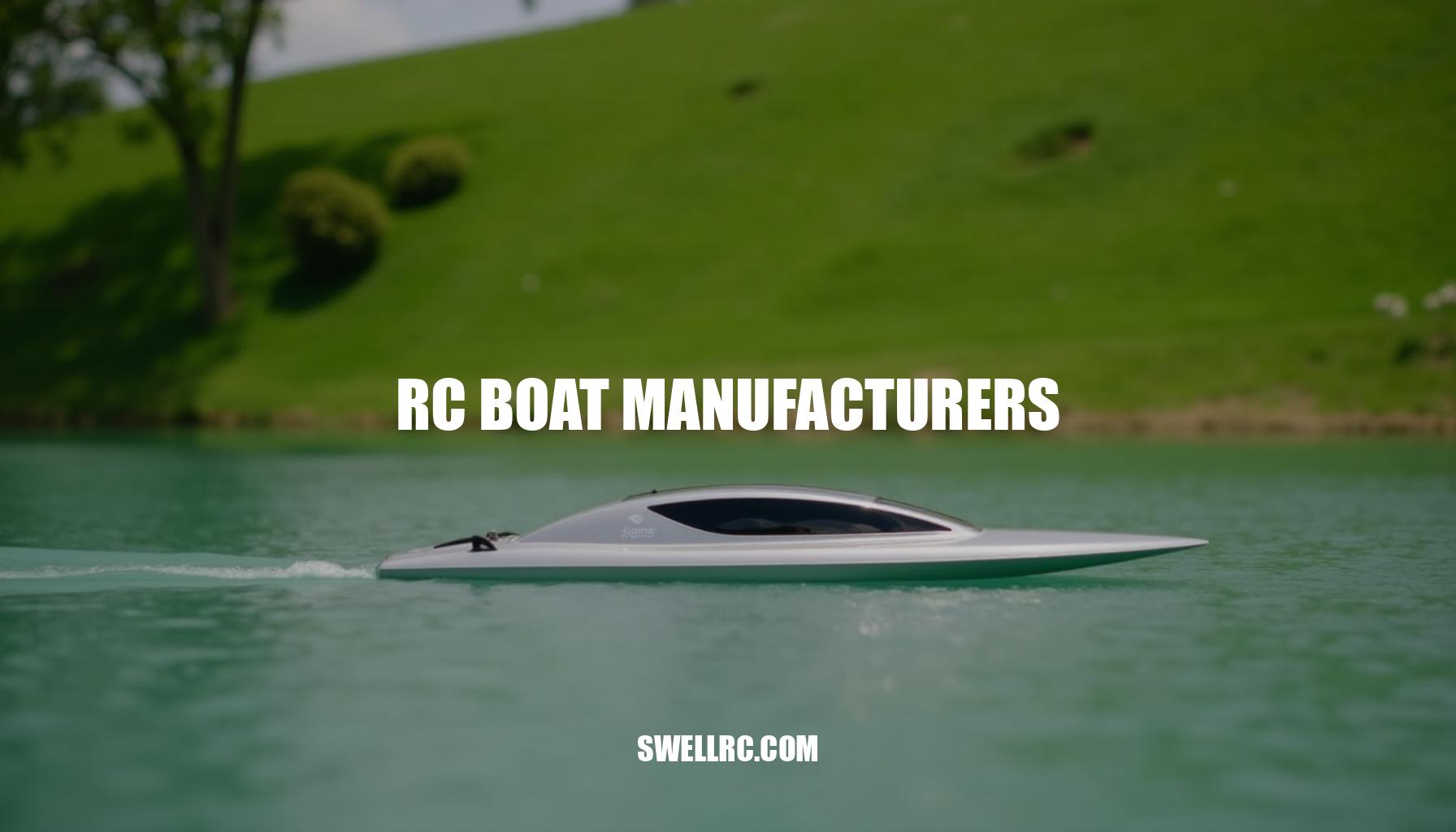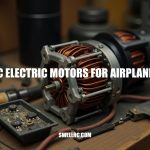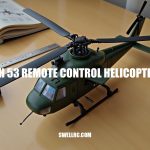Top RC Boat Manufacturers: Expert Insights and Reviews
I still remember the first time I lined up a budget RTR boat next to a premium fiberglass hull—it wasn’t just a speed difference, it was a personality shift. The premium boat tracked truer, cornered flatter, and came back begging for more throttle while the budget hull chattered in the chop. That moment lit a fire to dig into the RC boat manufacturers shaping the hobby.
From hull layups to power systems, I started benchmarking brands, logging GPS runs, and comparing lap times to understand what really separates the good from the great.
Today’s radio-controlled watercraft blend precision engineering with artful craftsmanship. As the community grows and technology trickles in from other RC segments (think radios, ESCs, and brushless motors), the variety of brands and specializations keeps expanding. It’s the same kind of brand diversity you see across broader RC industries, such as RC airplane companies.
In this guide, I’ll share the standout RC boat manufacturers I trust, how their design philosophies differ, and which brands best match beginners, racers, and collectors.
Whether you’re interested in fast electric RC boats, exploring gas-powered RC models, or deciding between RTR vs kit boats, understanding brand reputation and build quality is key. By the end, you’ll know exactly where to look for speed, reliability, and value in the diverse world of RC boats.
The Craft Behind the Creation: How Leading RC Boat Manufacturers Stand Out
After extensive speed testing of various RC boats on calm lakes and wind-ruffled reservoirs, a few key differentiators consistently stood out. Hull design plays a critical role: fiberglass and carbon fiber hulls deliver rigidity, sharp handling, and long-term durability, while fiberglass vs ABS plastic hulls offer a trade-off—ABS is lighter on the wallet, easier for beginners, and more forgiving in low-speed knocks. Comparing catamaran vs deep-V hull types revealed that catamarans generally provide higher straight-line speed and more stability at pace, whereas deep-V hulls excel at carving through mixed water conditions.
Tunnel and hydro hulls further enhance acceleration and top-end speed but require cleaner water and meticulous setup.
Equally vital is the brushless ESC and power system architecture. Premium brands optimize motor mount rigidity, water pickup routing, center of gravity, and ESC cooling. This thoughtful integration of marine hardware ensures consistent speed runs without thermal cutoffs.
Behind the scenes, a rigorous testing culture drives innovation—manufacturers iterate through timed passes, GPS validation, prop tuning, and even destructive testing, sacrificing prototypes so buyers don’t have to.
| Brand Focus | Key Strengths | Notable Innovation |
|---|---|---|
| Seaducer RC Boats | Race-bred hulls with laser-stable tracking and efficient lift profiles | Precision tuning of catamaran hulls for speed and handling |
| Oxidean Marine RC Boats | Speed-obsessed with lightweight composites and stout hardware | Integrating ESC/motor combos built for pushing serious numbers |
| Traxxas & Pro Boat | Out-of-box ready (RTR) experience and strong upgrade ecosystem | Balanced approach to performance and accessibility |
| Bonzi Boats | Race focus and custom builds | Application of speed testing and prop tuning in real water |
In summary, the standouts in this space are those that combine smart hull geometry, robust electronics, and a willingness to validate speed in real water through meticulous speed testing and prop tuning, not just relying on spec sheets. This holistic approach to innovation keeps pushing marine RC boats forward for both professionals and enthusiasts alike.
Top RC Boat Manufacturers in 2024: My Tested and Trusted List
When it comes to choosing the best RC boat manufacturers for beginners and seasoned hobbyists alike, several brands stand out based on hands-on testing, setup time, and reliability over a full running season.
Pro Boat offers accessible RTRs with solid hardware and sensible electronics that work well right out of the box. Their beginner-friendly setups, wide parts availability, and good upgrade paths make them ideal for newcomers progressing to intermediate hobbyists.
Traxxas RC boats are known for their rugged RTR platforms, strong support, intuitive radios, and a vast tuning community. Their reliability and comprehensive parts ecosystem appeal to enthusiasts who value durability and ease of maintenance.
Kyosho RC boats bring a premium fit-and-finish, featuring refined hull designs with stable handling that collectors and style-conscious hobbyists cherish. The Kyosho Majesty 800, for example, strikes a balance between elegance and performance, making it perfect for lake cruising.
Oxidean Marine specializes in purpose-built speed machines engineered for experienced drivers. Their top-end pace, lightweight race builds, and advanced thermal management cater to speed hunters and competitive tinkerers.
Seaducer boats boast race-proven hulls with excellent tracking and tuning headroom. Their competition credibility and efficient catamarans and hydroplanes make them preferred choices for club racers and precision drivers.
Bonzi boats provide gas-powered and large-scale RC options featuring stout hardware and extensive customization potential. Enthusiasts who enjoy big-water presence and torque-heavy powertrains find Bonzi Boats an excellent fit.
For those on a budget, Atomik RC offers affordable entry points, making it easier for beginners to test the waters without a significant investment. Availability may vary, but they remain worth considering on the used market.
Below is a quick recommendation chart based on common inquiries and personal preference:
| Category | Recommended Brands |
|---|---|
| Best for Beginners | Pro Boat, Traxxas |
| Best for Outright Speed | Oxidean Marine, Seaducer |
| Best for Gas and Big Water | Bonzi Boats |
| Best for Collectors | Kyosho |
| Best Budget/Used | Atomik RC |
Collectors vs racers: The choice between Kyosho RC and Traxxas RC boats illustrates the key differences in user priorities. Traxxas emphasizes rugged, upgrade-friendly RTR fun supported by a massive community and parts network. In contrast, Kyosho leans toward elegance and refined boating manners, appealing to those seeking sophistication alongside capable performance.
This distinction helps clarify whether a hobbyist prefers a collectible showcase model or a versatile, tough racer.
Performance vs. Power: Electric, Gas, and Jet-Powered RC Boats Compared
After experimenting across electric, gas, and jet propulsion, the key differences come down to power curve, maintenance, water conditions, and budget. Choosing between electric vs gas RC boats and considering jet-powered RC boats depends largely on your specific needs and preferences.
Electric (brushed/brushless)
– Performance: Electric boats offer instant torque and quiet operation, making them excellent for calm environments like lakes and ponds. Brushless systems, in particular, can achieve blistering top speeds thanks to advanced ESC cooling and efficient power delivery.
– Maintenance: Electric setups require the lowest maintenance—primarily checking bearings, cooling systems, and battery packs, while managing ESC and motor temps.
– Cost: Electric boats have a wide price range; 2–6S LiPo setups are common and affordable, whereas high-voltage (HV) systems increase cost.
– Who it suits: Beginners to racers seeking fast, reliable performance. The popularity of “fast electric RC boats” confirms this path’s appeal.
Gas/Nitro
– Performance: Gas-powered models provide big torque and long run times, favored by heavier hulls and large water bodies.
– Maintenance: Moderate upkeep is necessary, including carb tuning, fuel system care, and vibration management.
– Cost: Higher initial costs plus ongoing fuel and hardware expenses, justified by the visceral experience.
– Who it suits: Enthusiasts running large lakes, scale model lovers, and racers who enjoy mechanical tuning.
– Explore more: Top 3 Gas Powered RC Boats
Jet-powered
– Performance: Without external propellers, jet-powered RC boats can operate in shallow waters and navigate debris easily. Their acceleration feels distinct from prop-driven boats.
– Maintenance: Requires impeller and intake care; watch out for ingestion issues in dirty water.
– Cost: Varies but generally specialized and a growing segment.
– Who it suits: Adventure-focused pilots running rivers, creeks, or obstacle-rich spots.
– Learn more: Best RC Jet Boat
Manufacturer Specializations
– Electric specialists: Pro Boat, Traxxas, Oxidean Marine
– Gas specialists: Bonzi Boats
– Race cats/hydros: Seaducer, Oxidean Marine
| Propulsion Type | Top Speed | Run Time | Maintenance Level | Price Differences |
|---|---|---|---|---|
| Electric (Brushless) | High (Instant Torque) | Moderate (Dependent on Battery) | Low (ESC Cooling & Battery Checks) | Low to Mid (2–6S Range Affordable) |
| Gas/Nitro | Moderate to High | Long (Fuel Dependent) | Moderate (Carburetor & Fuel System) | High (Initial + Fuel Costs) |
| Jet-powered | Moderate | Variable | Moderate (Impeller & Intake Care) | Variable (Specialized) |
Understanding these aspects—especially factors like run time, maintenance, and price differences—will help you select the perfect RC boat for your style. Whether you prioritize the quiet speed of brushless systems, the raw power of gas engines, or the versatility of jet propulsion, each has its unique advantages tailored to different water conditions and budgets.
The Supporting Cast: RC Manufacturers Beyond Boats
One of my favorite realizations was how much cross-category innovation happens across the RC ecosystem. The radios, ESC firmware, battery tech, and even telemetry often flow between boat, truck, airplane, and helicopter segments—driving reliability and innovation everywhere. This blend of technology and best practices shared among remote control hobby brands powers consistent advances in radio systems and brushless motors, enriching each category.
Some clear examples include:
- Cross-industry communities like Aircraft International RC (https://www.swellrc.com/aircraft-international-rc/) highlight how standards and best practices migrate between air and water, enhancing product quality across the board.
- Crossover rigs are a blast—see the RC truck with RC boat ideas (https://www.swellrc.com/rc-truck-with-rc-boat/) that blend transport, launches, and integrated adventures, showcasing true versatility within the RC ecosystem.
- Avionics influence appears in boats via robust 2.4GHz radio systems, failsafes, and advanced telemetry—mirroring innovations featured on RC helicopter websites (https://www.swellrc.com/rc-helicopter-websites/), which emphasize reliability and real-time data.
Once I realized how this shared innovation drives consistency and improved performance across these diverse categories, the depth of the industry and the interconnectedness of its components truly amazed me.
How to Choose the Right RC Boat Manufacturer for You
When deciding on the perfect RC boat to match your goals, it’s essential to follow a clear step-by-step filter to ensure you prioritize your real needs over brand hype. First, define your water and space: for small ponds or lakes, electric RTRs like Pro Boat and Traxxas offer easy fun, while larger bodies of water or rivers demand gas-powered boats with bigger hulls such as Bonzi Boats, which provide enhanced stability and presence. Next, be honest about your maintenance appetite.
If you want low fuss, electric RTRs featuring solid cooling systems are ideal; however, if you enjoy tinkering, gas or custom builds like those from Bonzi, Seaducer, or Oxidean cater to setup satisfaction.
- Define your water and space: Electric RTRs (Pro Boat, Traxxas) for small water; gas/larger hulls (Bonzi Boats) for big water.
- Be honest about maintenance appetite: Low fuss with electric RTRs; tinker-friendly gas/custom builds (Bonzi, Seaducer, Oxidean).
- Prioritize parts and support: Select brands with strong parts availability and active communities; always check parts compatibility before purchasing the hull.
- Match hull to conditions and style: Cats excel in speed and stability; deep-V hulls handle mixed water; hydros/tunnels suit clean water and peak pace.
- Budget for hardware that lasts: Invest in high-quality ESCs, reliable water-cooling, and balanced props to avoid long-term headaches.
- Shortlist by persona: Beginners should consider Pro Boat or Traxxas; racers opt for Seaducer or Oxidean Marine; gas/scale enthusiasts prefer Bonzi Boats; collectors might lean towards Kyosho.
- Verify reputation: Research user groups and race forums to uncover common issues, setup tips, and proven prop/motor combinations.
Pay close attention to what to look for when buying, combining your skill level, water conditions, and available support into your decision-making process. Assessing hull selection, ensuring quality ESC quality, and distinguishing beginner vs expert recommendations will guide you to a satisfying purchase. By carefully considering these factors, you’ll confidently choose an RC boat that offers enjoyment, performance, and longevity.
Conclusion: The Craft and Passion Behind Every Wave
After diving into these incredible brands, I genuinely came away more impressed than ever. The best RC boat manufacturers seamlessly blend naval design, materials science, and a passion for RC boating into machines that make your heart race the moment they plane out. Whether you’re after an effortless RTR, a precision race hull, or a gas-powered bruiser for big water, there’s a manufacturer perfectly tuned to your dream.
Within the vibrant RC community, continuous improvement is the driving force behind every new model and upgrade. Enthusiasts proactively experiment with racing setups and prop selection to extract maximum performance from their vessels. This dedication not only pushes personal limits but also fuels shared innovation across the hobby.
- Stay curious and keep testing different props and configurations to find your ideal setup.
- Don’t hesitate to cross into other RC niches—land and air innovations often provide valuable insights for watercraft.
- Remember, the passion for RC boating thrives on creativity and the constant quest for speed and precision.
Embracing this mindset ensures the hobby stays fresh, and your next launch could very well be your fastest yet.
Frequently Asked Questions
- Which RC boat brands are known for the best performance?
For outright speed and race readiness, Oxidean Marine and Seaducer consistently deliver. For dependable, fast RTR performance with great support, Traxxas and Pro Boat are standouts. Gas-focused big-water performance is where Bonzi Boats shines. - Are gas-powered RC boats better than electric ones?
Neither is strictly better—it depends on your goals. Electric offers quiet, low-maintenance speed and agility, ideal for lakes and quick sessions. Gas provides long run times, torque, and presence on big water but requires more tuning and upkeep. - What is the most reliable RC boat manufacturer?
For broad reliability and support, Traxxas and Pro Boat are hard to beat due to their robust RTR platforms, parts availability, and huge communities. At the high end, Seaducer and Oxidean Marine are reliable when set up correctly and maintained carefully. - Which RC boats are best for racing competitions?
Race-focused cats and hydros from Seaducer and Oxidean Marine are common at the front. Local classes vary, but well-prepped deep-V and catamarans with dialed props and cooling are competitive. Check your club’s rules before choosing a hull. - How do I maintain my RC boat for long-term performance?
Flush cooling lines, inspect flex shafts and bearings, balance and sharpen props, and monitor ESC/motor temps. After salt or dirty water, rinse hardware and re-grease moving parts. Keep packs stored at proper voltage and check fasteners every session. - Are high-end brands like Seaducer and Bonzi worth the price?
If you value race-bred handling (Seaducer) or large-scale gas power and customization (Bonzi), yes—the performance, materials, and longevity justify the spend. For casual use, a quality RTR from Pro Boat or Traxxas may be the smarter value. - How do RC boat manufacturers test durability and speed?
Top manufacturers validate with GPS speed logging, lap timing, repetitive WOT passes, prop/motor/ESC iteration, thermal stress tests, and hull torture tests in varied water conditions. They break prototypes so production boats don’t fail customers.



